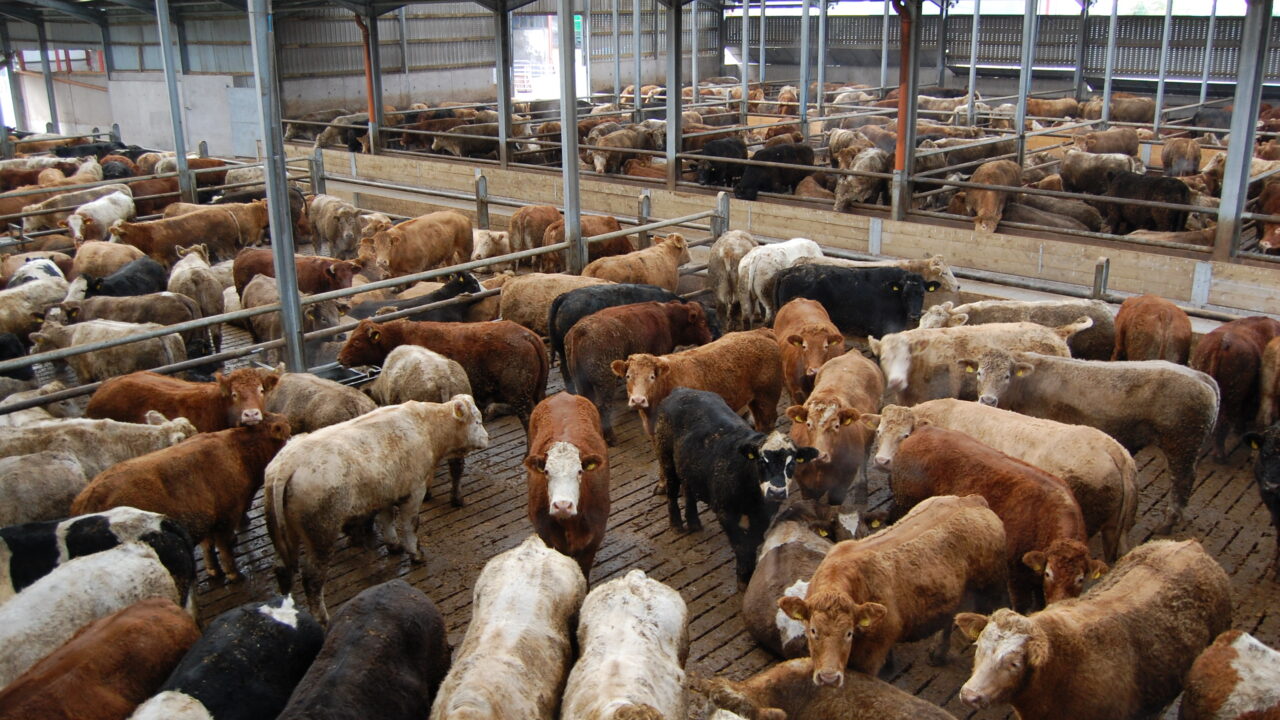There has been little movement in the beef trade this week, but a number of procurement managers have said that they will face difficulty securing stock over the next two-to-three weeks.
One procurement manager told Agriland that cattle numbers have tightened considerably over the past few weeks.
The reduced cattle kill may play into cattle finisher’s hands, as procurement managers may be forced to pay more to secure stock.
Another buyer added that finished cattle supplies in sheds are beginning to dry up and due to the delay in spring turnout, grass cattle supplies are slower coming on stream.
Beef cattle prices remain unchanged in factories
Despite relatively tight cattle supplies, prices have remained unchanged from last week, when prices for both steers and heifers increased by 5-10c/kg.
Beef steers are now trading at 400-405c/kg, while heifers have also remained at last week’s price of 410c/kg.
However, farmers selling larger numbers of heifers may be able to hold out for prices closer to 415c/kg.
Unlike the prime cattle price, cull cow trade has remained static for a number of weeks, with R grade cull cows generally trading from 340-350c/kg.
The plainer O and P type dairy lots are making 320c/kg and 310-315c/kg respectively.
Beef cattle supplies continue to remain tight with just 28,630 slaughtered at Department of Agriculture approved beef export plants during the week ending May 22.
Figures from the Department of Agriculture show that the weekly beef kill has been below 30,000 head for the past five weeks.
Official figures from the Department’s beef kill database also show that prime cattle throughput continues to remain tight. Looking at the cull kill, throughput of aged bulls increased by 7%, while the number of cows slaughtered during the week ending May 22 was 6% higher than the week before.
According to Bord Bia, the British beef trade has continued to edge upwards on the back of increased demand, resulting in some upward movement in British prices.
In euro terms, the British steer and heifer price is now the equivalent of 429c/kg.
Bord Bia also says that the French market continues to remain slow due to ongoing strikes which are leading to more delays in deliveries, which is affecting products with short shelf lives.
French retail promotions continue to focus on domestically produced beef, it reports, while the recent bad weather has eased some of the customer demand for beef.
Meanwhile, there was little change in the Italian beef trade last week, but R3 young bulls declined by 5c/kg to an average price of 380c/kg.
Cattle supplies
Main markets
